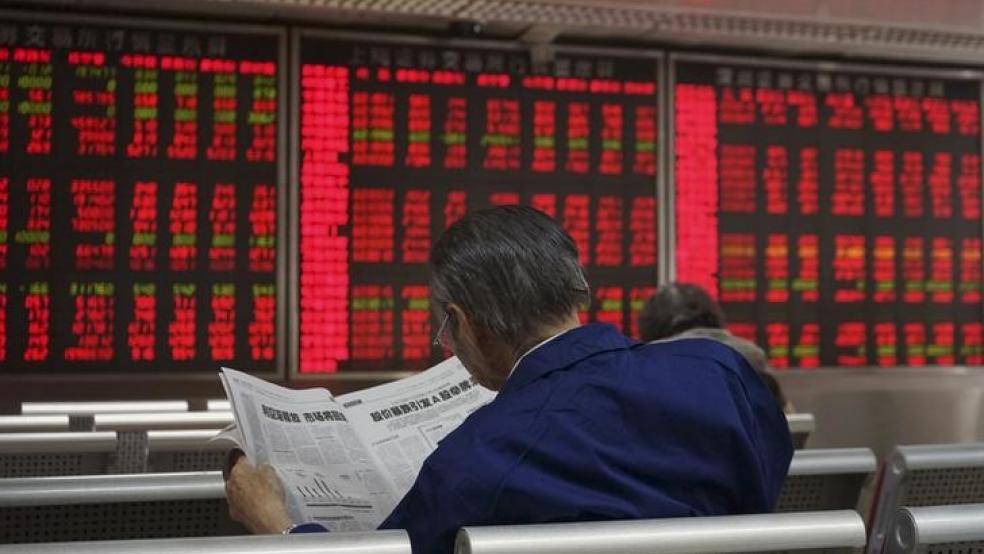HONG KONG/SHANGHAI (Reuters) - Hundreds of foreign hedge funds and traders are working in a regulatory grey area in China, using speculative trading strategies that are complicating regulators' efforts to calm the country's turbulent stock markets.
Interviews with more than a dozen foreign hedge funds, proprietary traders and consultants reveal foreigners are active on a large scale in Chinese stocks, despite tight investment rules designed to limit their activities.Foreign hedge funds have found legal ways to bet on Chinese stocks and derivatives without going through formal investment channels, which prevent them using strategies such as short-selling, blamed by some authorities for the sell-off."With current market volatility and weak retail investor sentiment, these hedge fund strategies would naturally lead them to sell the market ... which is against the government's intention of propping up the market," said Oliver Barron, China market analyst at investment bank NSBO in Beijing.Since peaking in June, the Shanghai and Shenzhen markets have fallen nearly 30 percent, triggering a crackdown on "malicious" short-selling and a probe into automated trading practices commonly used by hedge funds.Hedge funds and proprietary traders boost market liquidity and form part of any healthy stock market, but analysts say they can have an outsized impact on China's exchanges which lack a stabilizing base of buy-and-hold investors.There are no public figures on the number of foreign hedge funds operating in China, but industry insiders say there are hundreds using a variety of structures that are legal but bypass formal channels which are more visible and tightly controlled.Typically, firms set up wholly owned onshore trading entities to deal primarily in physical goods like commodities - anything from nuts and bolts to nickel - and then expand into financial securities through partnerships with local brokers, they said.As far as the law is concerned, they are registered commodity trading or consulting firms that are simply using their profits to play the share market, just as any onshore company might do, or selling trading advice to local investors."There are many obstacles for foreigners looking to either set up share and futures trading operations onshore or gain market access remotely, but there are a number of structures that firms can and do use to get into the market," said Eric Neo, chief executive of Neo & Partners Global which helps firms set up in China and other markets.HONEY POT FOR HEDGE FUNDSThe proliferation of foreign hedge funds and proprietary traders is also complicating the regulators' efforts to trace short-sellers."With these structures, once you've generated your profits you can do what you like with them," said one executive who had helped set up a U.S. trading firm in China. "There are more than a 120 million trading accounts in Shanghai alone. No one can regulate that many accounts and know what's going on."China's markets watchdog has frozen almost 40 trading accounts for "trading irregularities" since markets started to tumble, but it has not alleged any illegality.Citadel Securities, a unit of the U.S. group that also owns hedge fund Citadel LLC, identified itself this week as being linked to one of these accounts - the only time a foreign firm has confirmed that it has been caught up in the crackdown.Citadel said it met all local laws and regulations.The China Securities Regulatory Commission (CSRC) did not respond to requests for comment. It has not named any holders of the accounts suspended so far, though the stock exchanges have released a few names of domestic account holders only.Foreign hedge fund sources say they are watching the Citadel case closely, concerned the crackdown could lead to a rewriting of investment rules that would make it much harder for them to operate. Chinese state media blame foreign speculators for the recent sell-off, exhorting local investors to patriotically buy up shares. But industry sources say many Chinese investors are putting their cash with the hedge funds because they see it as a better way to make quick money in an unpredictable market.Apart from Citadel, big electronic trading firms operating in China include U.S.-headquartered Virtu Financial IncBehind enemy lines: foreign hedge funds thrive in China

Aly Song



